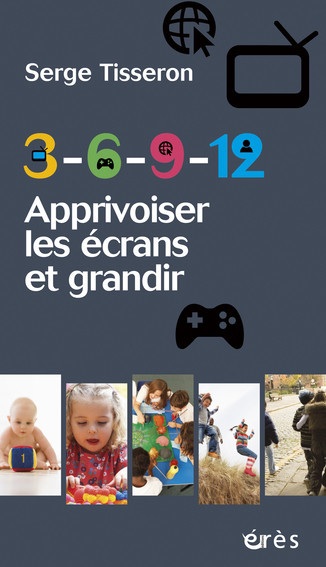“Have you heard about 3-6-9-12?” asked my former colleague. “No,” I answered. “It’s a book that’s just been published,” he continued, “and which a lot of people in France have been discussing because it makes strong recommendations about how to manage our children’s interactions with the many screens in their lives. Like, for instance, keeping them away from television until they’re three, not allowing them to play videogames alone until they’re six, and so on.”
And as I always do when talking with this person, someone I have held in immense esteem as both a teacher and a head of school for some 20 years, I made a mental note of his reference and resolved to visit a bookstore that same evening to buy the work he had mentioned. Had I been in New York, doing so would have been impossible, but I had the good fortune of finding myself in Paris, like I do every October for a series of meetings about the French Baccalaureate with International Option, otherwise known as the OIB.
“What about the ages of nine and twelve?” I inquired. “If I remember correctly,” replied my friend, “the author proposes something like no unsupervised computers or smartphones before kids are nine and no unattended internet until they’re twelve.” He went on, “My wife and I were laughing about this book the other day because its views are so unusual that we had both wondered aloud, ‘is there anyone capable of following such guidelines?’ Then we had looked at each other and smiled. ‘Well, we most certainly have, that’s for sure.”
Our conversation moved on, but I purchased a copy of 3-6-9-12 that very night and have been thinking about my old colleague’s words ever since, not least because his children are among the most talented and refined young people I have met, regardless of what I now know about their upbringing! Parenting today, but schooling too I would say, requires exceptionally clear vision, my friend’s comments underlined. For all of us engaged in 21st century education, we must embrace our times with passion and yet also develop a compass for navigating them which never loses sight of what matters and always advances what we believe to be important. Screens may be everywhere, but the future is ours to shape.
PS. If you happen to have read 3-6-9-12, or anything else on this subject, please do let me know. I am keen to hear your thoughts.
*Serge Tisseron, 3-6-9-12: Apprivoiser les écrans et grandir (Toulouse: Editions érès, 2013).
About the Author :
Sean Lynch was Head of School at the Lycée Français de New York from 2011 to 2018, after having spent 15 years at another French bilingual school outside of Paris: the Lycée International de St. Germain-en-Laye. Holding both French and American nationalities, educated in France (Sciences Po Paris) and the United States (Yale), and as the proud husband of a French-American spouse and father of two French-American daughters, Sean Lynch has spent his entire professional and personal life at the junction between the languages, cultures and educational systems of France and the United States. In addition to being passionate about education, he loves everything related to the mountains, particularly the Parc National du Mercantour.


